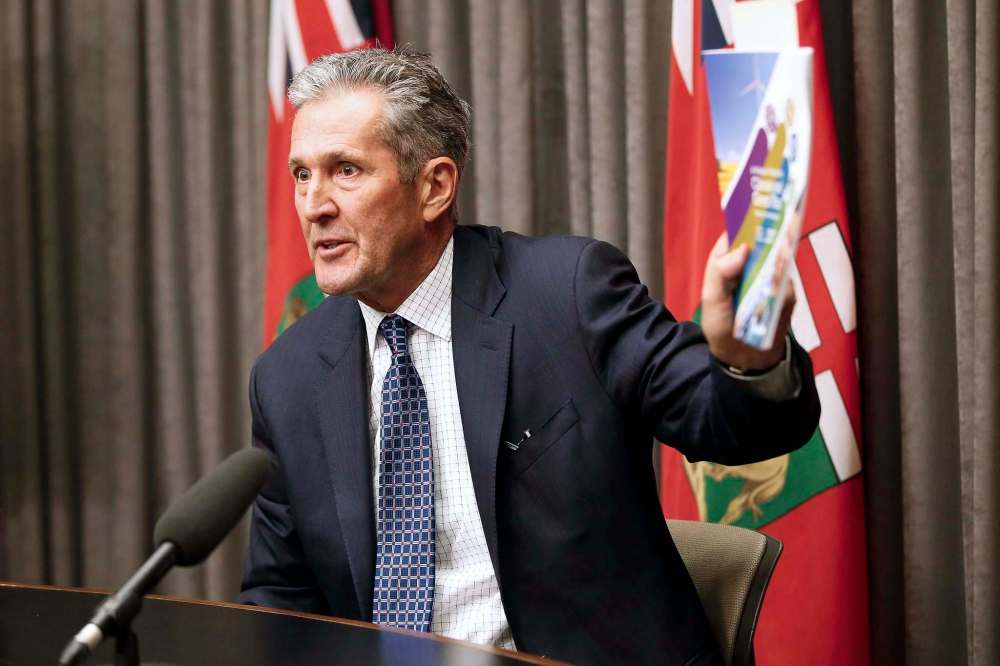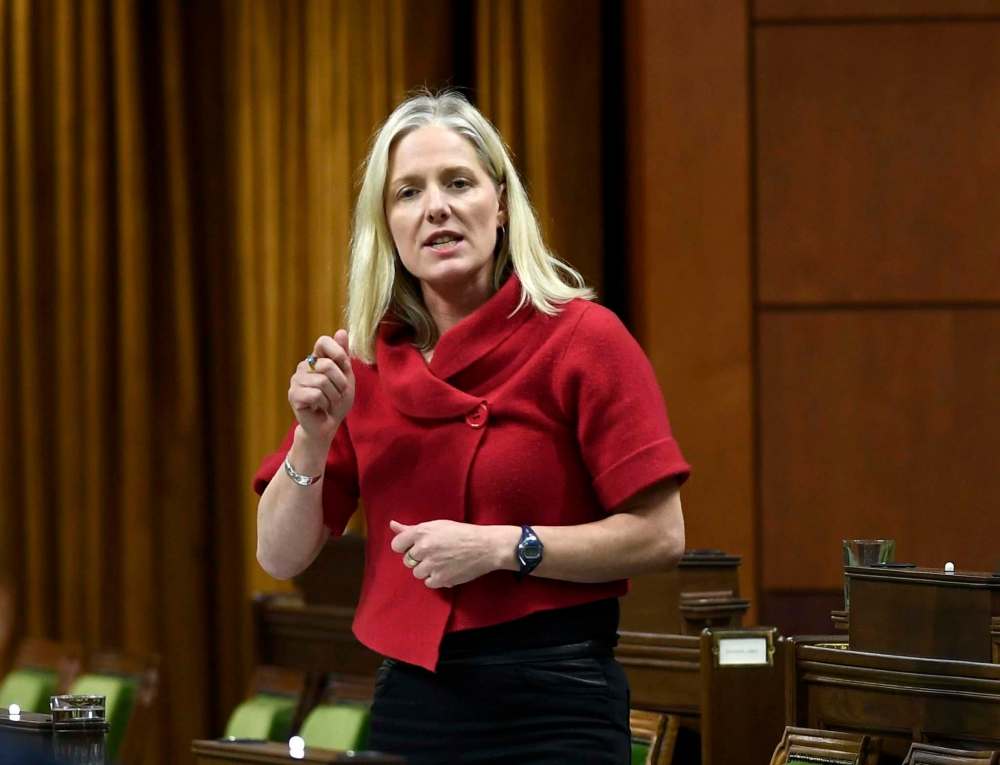Tories slow to tap federal cash
Three years in, Manitoba has accessed nine per cent of carbon-tax funds
Advertisement
Read this article for free:
or
Already have an account? Log in here »
To continue reading, please subscribe:
Monthly Digital Subscription
$0 for the first 4 weeks*
- Enjoy unlimited reading on winnipegfreepress.com
- Read the E-Edition, our digital replica newspaper
- Access News Break, our award-winning app
- Play interactive puzzles
*No charge for 4 weeks then price increases to the regular rate of $19.00 plus GST every four weeks. Offer available to new and qualified returning subscribers only. Cancel any time.
Monthly Digital Subscription
$4.75/week*
- Enjoy unlimited reading on winnipegfreepress.com
- Read the E-Edition, our digital replica newspaper
- Access News Break, our award-winning app
- Play interactive puzzles
*Billed as $19 plus GST every four weeks. Cancel any time.
To continue reading, please subscribe:
Add Free Press access to your Brandon Sun subscription for only an additional
$1 for the first 4 weeks*
*Your next subscription payment will increase by $1.00 and you will be charged $16.99 plus GST for four weeks. After four weeks, your payment will increase to $23.99 plus GST every four weeks.
Read unlimited articles for free today:
or
Already have an account? Log in here »
Hey there, time traveller!
This article was published 23/02/2020 (2117 days ago), so information in it may no longer be current.
OTTAWA — Manitoba has only tapped a tenth of its federal carbon-retrofit cash, leaving two approved projects unannounced for eight months.
The Low Carbon Economy Fund is meant to help provinces and companies reduce greenhouse-gas emissions, but it’s also been a flashpoint between Ottawa and Broadway.
The $1.4-billion “leadership” portion of the fund is meant to reward provinces and territories for adhering to a 2016 set of policies on climate change, and to help pay for those commitments.
In December 2017, officials leaked a letter showing that Manitoba would lose out on its LCEF cash if it didn’t endorse the deal.
The Pallister government signed on two months later, after it secured a guarantee the funding didn’t require adhering to the federal carbon tax.
The Liberals hinted at changing their minds in October 2018, when Premier Brian Pallister cancelled his own carbon tax, but have since guaranteed the funding will flow to Manitoba.
A month later, former Environment Minister Catherine McKenna bemoaned the province’s delay in submitting LCEF funding proposals.

According to a June 2019 briefing note, McKenna approved three projects for Manitoba. The details and amounts involved are censored under access-to-information laws.
In the eight months since that sign-off, only one of the three Manitoba projects has been announced, a $5.9-million efficient-trucking program that amounts to nine per cent of the province’s $66.7-million allocation.
Three provinces and territories have not accessed their LCEF funding. Among the 10 who have, Manitoba has picked up the least of its share. Those jurisdictions on average have accessed 73 per cent of their funding.
The office of Conservation and Climate Minister Sarah Guillemard declined an interview request last week, and would not explain the hold-up.
Instead, a spokeswoman said Manitoba has submitted five project applications to Ottawa so far.
‘A number of projects are being negotiated, or finalized. It would not be appropriate to comment further on ongoing negotiations…’– Manitoba cabinet spokeswoman Olivia Billson
“A number of projects are being negotiated, or finalized,” wrote Olivia Billson.
“It would not be appropriate to comment further on ongoing negotiations until the projects and the funding agreements are finalized.”
A federal cabinet sign-off is generally the last step for funding programs, as bureaucrats have already assessed projects and confirmed provincial cost-sharing by the time it reaches that point.
Guillemard’s predecessor, Rochelle Squires, said in November 2018 that her government plans to use the LCEF cash for electrifying vehicles, diverting organic waste from landfills and displacing propane as a heating source in the northern town of Churchill.

!function(e,i,n,s){var t=”InfogramEmbeds”,d=e.getElementsByTagName(“script”)[0];if(window[t]&&window[t].initialized)window[t].process&&window[t].process();else if(!e.getElementById(n)){var o=e.createElement(“script”);o.async=1,o.id=n,o.src=”https://e.infogram.com/js/dist/embed-loader-min.js”,d.parentNode.insertBefore(o,d)}}(document,0,”infogram-async”);
The Pallister government has bristled at suggestions it’s been slow to access federal cash on everything from gang prevention to infrastructure projects.
Before repealing his own carbon tax, Pallister called for a higher levy than the federal benchmark, in order to bring down emissions faster. The Manitoba Climate and Green Plan also calls for expediting funding applications for industries the LCEF is meant to support.
The Pallister and Trudeau governments have exchanged accusations that the other is playing politics with climate change, instead of focusing on measures to reduce carbon.
The premier has argued Manitoba is among the greenest provinces in Canada, and pledged this past week that his spring budget will focus on environmental initiatives.
The LCEF funding could be used to boost those spending numbers.
dylan.robertson@freepress.mb.ca
Ottawa's June 2019 approval letter of Manitoba carbon-retrofit projects




